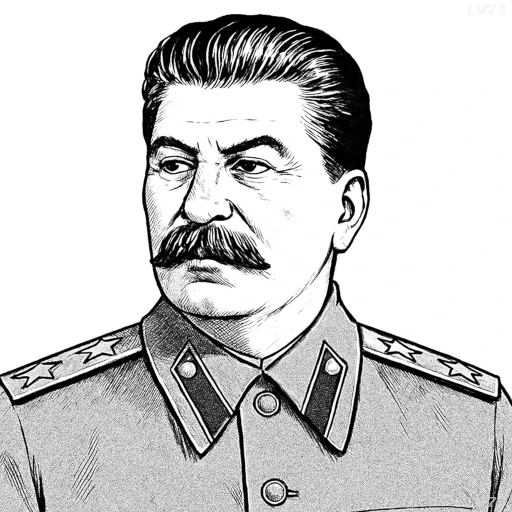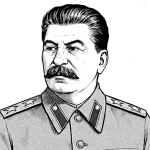“Gaiety is the most outstanding feature of the Soviet Union.”

- December 18, 1878 – March 5, 1953
- Born in Georgia
- Politician
table of contents
Quote
“Gaiety is the most outstanding feature of the Soviet Union.”
Explanation
This quote is a striking example of Soviet propaganda that reflects the official narrative promoted by Stalin’s regime, which aimed to present the Soviet Union as a utopian society where citizens lived in happiness and harmony under the leadership of the Communist Party. The use of the word “gaiety” is an attempt to convey an image of joy, celebration, and prosperity, which starkly contrasts with the reality faced by many Soviet citizens, especially during periods of economic hardship, forced collectivization, and the Great Terror. In the context of Stalin’s leadership, the regime used such statements to create an idealized image of life in the Soviet Union, masking the pervasive fear, oppression, and suffering that defined much of daily life for the people.
In reality, the Soviet Union was marked by widespread censorship, political repression, and a lack of basic freedoms. The forced collectivization of agriculture led to famine and suffering, while the purges and the actions of the NKVD (Soviet secret police) instilled fear across the population. By presenting a narrative of “gaiety,” Stalin’s regime was using propaganda to suppress dissent and maintain control, ensuring that any negative portrayals of Soviet life were silenced. This statement is a clear example of how the government controlled the public narrative, emphasizing the positives of Soviet life, while concealing the reality of authoritarian rule.
In the modern context, this quote serves as a reminder of how totalitarian regimes often manipulate public perceptions of life under their rule. It highlights the dangers of propaganda and the need for a free press and critical discourse in societies to ensure that the voices of the people are not overshadowed by the state’s manipulation of information. Today, it calls attention to the importance of acknowledging both the successes and failures of a system, rather than relying on an idealized, one-sided narrative that obscures the full reality of governance.
Would you like to share your impressions or related stories about this quote in the comments section?

